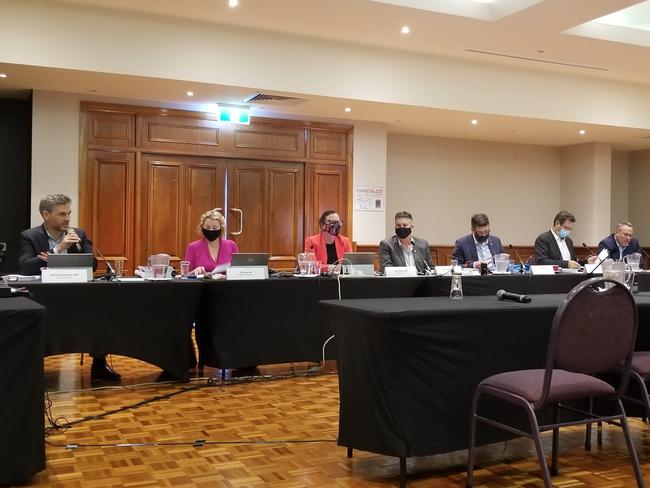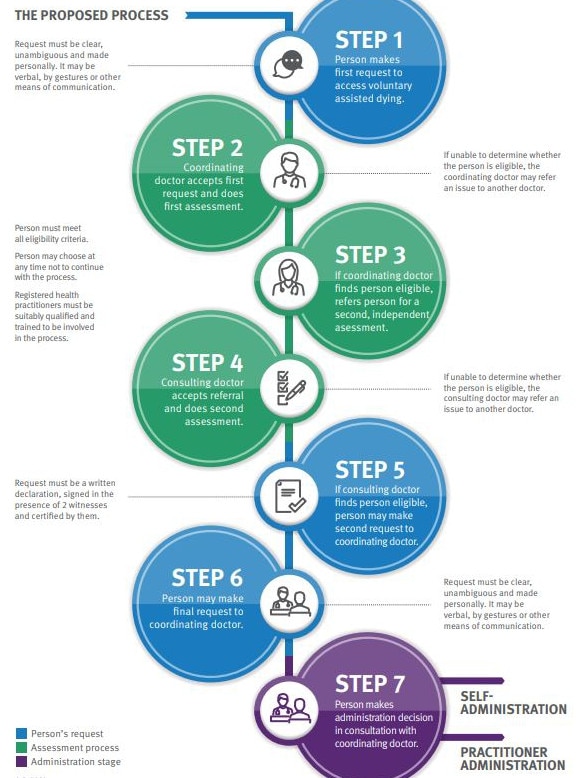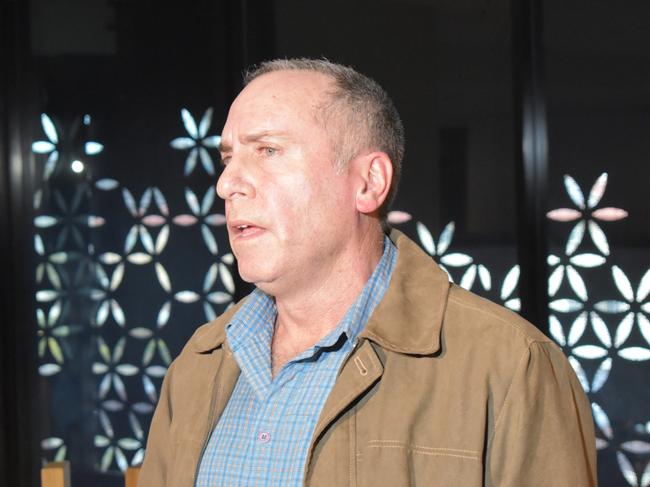Rockhampton residents address Health Committee on QLD euthanasia bill
The public forum about proposed voluntary assisted dying laws was held at the Rockhampton Leagues Club on Tuesday, July 13. Rockhampton woman Catherine Herbert was one of many who bravely shared her story.

Community News
Don't miss out on the headlines from Community News. Followed categories will be added to My News.
Rockhampton residents, politicians, and medical representatives met at the Rockhampton Leagues Club on Tuesday to tell the state’s Health Committee their opinions about proposed euthanasia laws.
One of those who addressed the committee, Catherine Herbert, was in favour of the bill.
“If the legislation comes in, no matter what choice people want to make – either having palliative care or whatever else, treatment – the knowledge that you've got an opportunity to make a choice, to ask for this, would provide such a comfort,” she said.
“It certainly will to me, and it would have done to our mother when she died in 2017.
“She did want to die. She had no pain. She was 97, she had to breathe oxygen all the time, her skin was so sensitive anyone who touched her bruised it, she couldn’t walk … she had a bag for a bladder, and she wanted to go.
Ms Herbert said that although palliative care was “certainly in the mix”, she wanted those opposed to euthanasia to “stop treating individuals like idiots”.
“You really don’t know our mind,” she said.
“We’ve all thought about it: nobody who gets older doesn’t think about death, because we’re all going to die.
“I think there’s more good sense in the community than some wish to acknowledge. When our turn comes we want to know that there’s some means of doing this.
“Let’s get on with it.”

Catholic priest Andrew Chase said the proposed law would shift the focus of health care towards “a utilitarian view of human life”.
He thought that the bill contained inadequate protection for people with poor mental health, that investment in palliative care was lacking, and that the requirement for objecting doctors to refer patients elsewhere would implicate them in an “essentially unethical” act.
“I think that by presenting the deliberate ending of one’s own life as a valid approach to deal with illness and suffering, I think this bill will contribute to a social shift in how we understand and value the ultimate dignity of all human life,” Mr Chase said.
“Many Queenslanders are not able to access palliative care, and yet they will be presented with euthanasia as essentially an equivalent medical alternative, when in fact it’s a fundamentally different act from the receipt of proper palliative care, which offers both physical relief of pain and respects basic human dignity.
“When one’s basic commitment to health care rests on the principle that first of all we try to heal, and if we can’t do that we try to provide care for the person, then the referral for euthanasia is not something that I feel one can do in good conscience; to do so would be to formally cooperate in an act that one believes to be essentially unethical.
“I have deep concerns about this bill, and I would simply ask that all members who are going to vote on this legislation would consider very, very seriously the fundamental shift in our understanding of the dignity of the human person that I think it will bring about.”
Queensland convener of Doctors for Assisted Dying Choice, Dr Sid Finnigan, said evidence from public inquiries across Australia and in other parts of the world supported voluntary assisted dying.
“The whole argument is entirely based on evidence, even though the emotions are high around someone’s end of life, the facts are very much straightforward, and that is firstly that even with the best palliative care, some people still do have very poor quality of death.
“In the absence of voluntary assisted dying legislation … it’s a reality that an unacceptable number of terminal people are taking matters into their own hands.
“At this very point in time in Queensland, an average of seven every month will end their own life by most distressing means.
“The other evidence is that all of the slippery slope arguments that are put forward by the voluntary assisted dying opponents in fact have no basis. And this just comes from many decades of experience from jurisdictions overseas where the VAD laws have been in place, plus of course in our own country now with three reports coming from the Victorian state.”

Clem Jones Trust chair David Muir said there had been “a cry, a plea by Queenslanders for decades” for euthanasia laws.
“Mortality is something that we all need to face, so this is an issue that impacts on every single one of us,” he said.
“Reputable market research including polling commissioned by the Clem Jones Group shows 70-80 per cent of Queenslanders support voluntary assisted dying.
“A recent report by the Council of the Ageing shows 76 per cent of older Australians support VAD and 55 per cent would consider using them if needed.
“We certainly agree that palliative care is underfunded. Palliative care will help most people, most of the time, but the top experts in the world, including here in Queensland, palliative care experts, will say to you that there are some people that palliative care will not help. We can’t abandon those people.
“It’s not an either-or. Palliative care is complementary to voluntary assisted dying, and vice versa.”
Professor Alan Sandford said that the The Royal Australasian College of Medical Administrators had “no specific position on the legislation or the matter of voluntary assisted dying”, but said doctors should not be forced by law to participate in euthanasia.
He had no objection to the bill’s provision that if morally opposed to the process, doctors would have to refer patients to another trained provider.
Fitzroy Community Hospice board members Stephen Richards, Paula Ryan, and Mark Thompson’s primary concern was that proper palliative care was not available due to insufficient funding, and that therefore, euthanasia would be used as a substitute.
“Voluntary assisted dying is solely based on choice,” Ms Ryan said.
“True choice at the end of life must include excellent palliative care.”
Australian Medical Association Queensland and Palliative Care Queensland said in May that an extra $275 million a year was needed to provide accessible palliative care of a sufficient quality across the state.
Member for Rockhampton Barry O’Rourke and Member for Keppel Brittany Lauga also addressed the committee.



